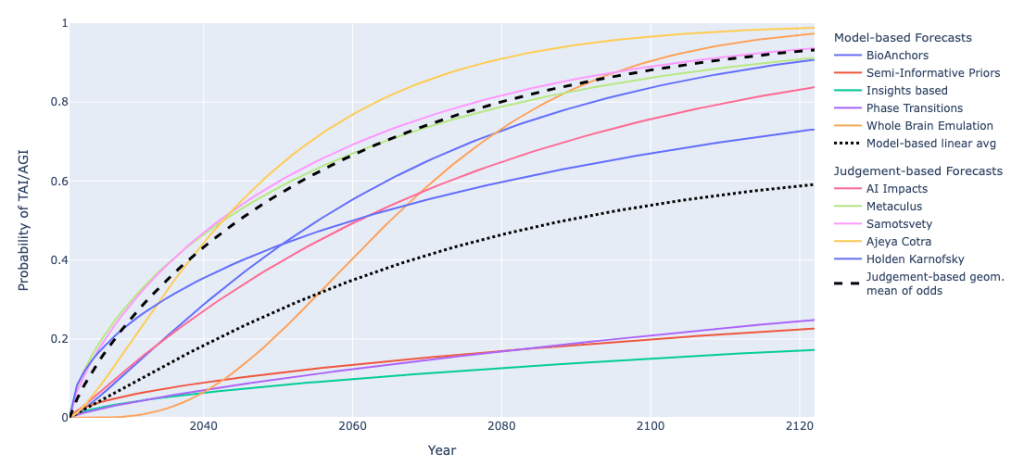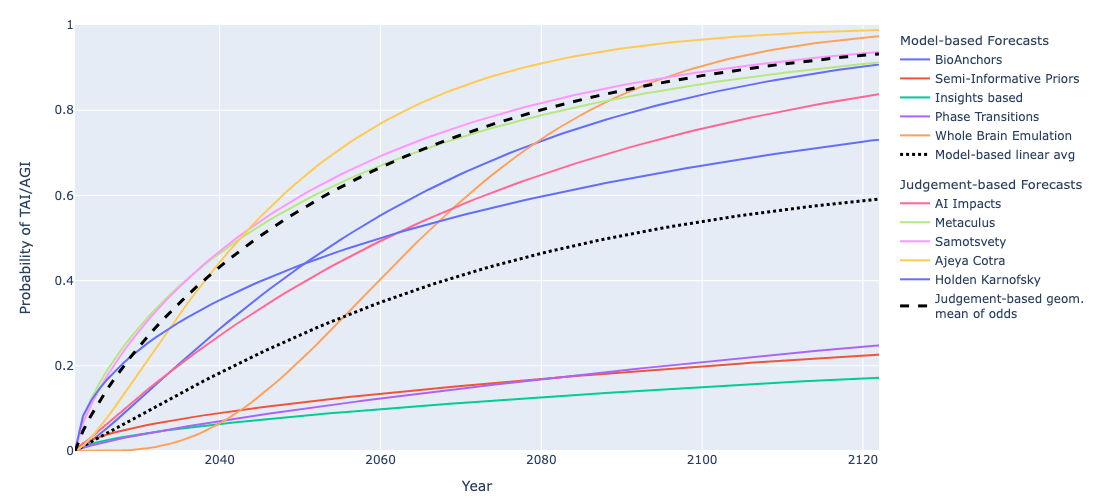Recent forecasts from AI experts and researchers suggest a significant probability of transformative artificial intelligence (TAI) emerging within the next few decades. This article summarizes key findings from various prediction models and expert judgments to provide business leaders with actionable insights on potential AI timelines.
Key Takeaways:
- Median estimates for TAI arrival range from 2040 to 2060, with some models predicting earlier dates.
- Expert judgments tend to be more optimistic than model-based forecasts.
- Inside-view models, which consider current AI progress, generally predict shorter timelines than outside-view models.
Model-Based Forecasts:
- Biological Anchors Model (Ajeya Cotra):
- 47% chance of TAI by 2050
- Median estimate: 2052
- Approach: Compares AI compute requirements to biological benchmarks
- Semi-Informative Priors Model:
- 11% chance of TAI by 2050
- Median estimate: Beyond 2100
- Approach: Uses historical AI research data to inform predictions
- Whole Brain Emulation Model:
- 25% chance of TAI by 2050
- Median estimate: 2064
- Approach: Estimates timeline for high-fidelity human brain modeling
Expert Judgments:
- Samotsvety Forecasting Team:
- 60% chance of TAI by 2050
- Median estimate: 2043
- Based on predictions from top-performing forecasters
- Metaculus Prediction Platform:
- 63% chance of TAI by 2050
- Median estimate: 2039
- Aggregates predictions from 314 forecasters
- AI Impacts Survey (2022):
- 40% chance of TAI by 2050
- Median estimate: 2059
- Based on responses from 738 AI researchers
Implications for Business Leaders:
- Strategic Planning: Consider multiple scenarios for AI development, including the possibility of transformative AI emerging within 20-30 years.
- Investment Decisions: Evaluate long-term investments and R&D strategies in light of potential AI breakthroughs.
- Workforce Preparation: Develop strategies to adapt your workforce for an AI-driven future, focusing on skills that complement AI capabilities.
- Ethical Considerations: Engage in discussions about AI ethics and governance to help shape responsible AI development.
- Competitive Advantage: Monitor AI progress closely and be prepared to leverage emerging technologies to maintain a competitive edge.
While these forecasts should not be taken as certainties, they provide valuable insights for business leaders to consider when planning for the future. The potential for transformative AI within the next few decades underscores the importance of staying informed and adaptable in the face of rapid technological change.










